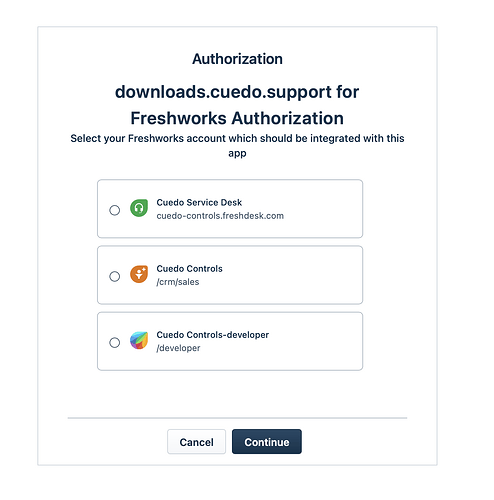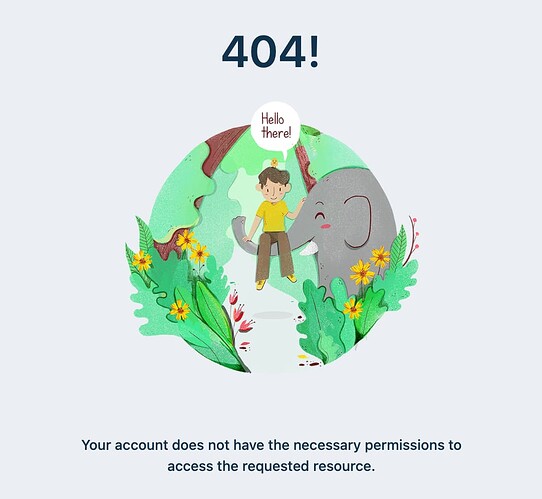Is the “external app” mentioned on this page (Freshworks Developer Docs | Implement OAuth authorization flow in external apps (that access Freshworks resources)) the correct use-case for calling from a severless app?
In this case the serverless app would redirect the user to the oauth page using headers and the Freshdesk login page would redirect them back to the file?
Something like this (ChatGPT used):
Detailed Implementation Steps
1. User Authorization
Redirect Users for Authorization:
Construct the URL to redirect users to Freshdesk’s authorization endpoint:
python
Copy code
from urllib.parse import urlencode
def get_authorization_url(client_id, redirect_uri):
base_url = 'https://yourdomain.freshdesk.com/oauth/authorize'
params = {
'response_type': 'code',
'client_id': client_id,
'redirect_uri': redirect_uri,
'scope': 'read'
}
return f"{base_url}?{urlencode(params)}"
Example URL:
bash
Copy code
https://yourdomain.freshdesk.com/oauth/authorize?response_type=code&client_id=YOUR_CLIENT_ID&redirect_uri=YOUR_REDIRECT_URI&scope=read
2. Exchange Authorization Code for Access Token
Handle Callback and Exchange Code:
When Freshdesk redirects back to your application with an authorization code, exchange it for an access token:
python
Copy code
import requests
def get_access_token(auth_code, client_id, client_secret, redirect_uri):
token_url = 'https://yourdomain.freshdesk.com/oauth/token'
data = {
'grant_type': 'authorization_code',
'code': auth_code,
'redirect_uri': redirect_uri,
'client_id': client_id,
'client_secret': client_secret
}
response = requests.post(token_url, data=data)
return response.json().get('access_token')
3. Verify NDA Status and Serve File
Backend Service to Check NDA and Serve Files:
Implement a backend service that checks the NDA status and serves the file:
python
Copy code
import json
import boto3
import requests
from flask import Flask, request, redirect, jsonify
app = Flask(__name__)
s3_client = boto3.client('s3')
freshdesk_domain = 'yourdomain.freshdesk.com'
client_id = 'YOUR_CLIENT_ID'
client_secret = 'YOUR_CLIENT_SECRET'
redirect_uri = 'YOUR_REDIRECT_URI'
def check_nda_status(access_token, user_id):
headers = {'Authorization': f'Bearer {access_token}'}
response = requests.get(
f'https://{freshdesk_domain}/api/v2/users/{user_id}',
headers=headers
)
user_data = response.json()
return user_data.get('custom_fields', {}).get('nda_signed', False)
def generate_presigned_url(bucket_name, object_key):
response = s3_client.generate_presigned_url(
'get_object',
Params={'Bucket': bucket_name, 'Key': object_key},
ExpiresIn=3600
)
return response
@app.route('/download', methods=['GET'])
def download_file():
auth_code = request.args.get('code')
file_key = request.args.get('file_key')
if not auth_code or not file_key:
return jsonify({'error': 'Missing parameters'}), 400
# Exchange authorization code for access token
access_token = get_access_token(auth_code, client_id, client_secret, redirect_uri)
# Use the access token to get user information
user_info_response = requests.get(
f'https://{freshdesk_domain}/api/v2/users/me',
headers={'Authorization': f'Bearer {access_token}'}
)
user_info = user_info_response.json()
user_id = user_info.get('id')
# Check NDA status
nda_signed = check_nda_status(access_token, user_id)
if nda_signed:
# Generate presigned URL for S3
url = generate_presigned_url('your-bucket', file_key)
return redirect(url)
else:
return jsonify({'error': 'Access denied. NDA not signed.'}), 403
if __name__ == '__main__':
app.run()

